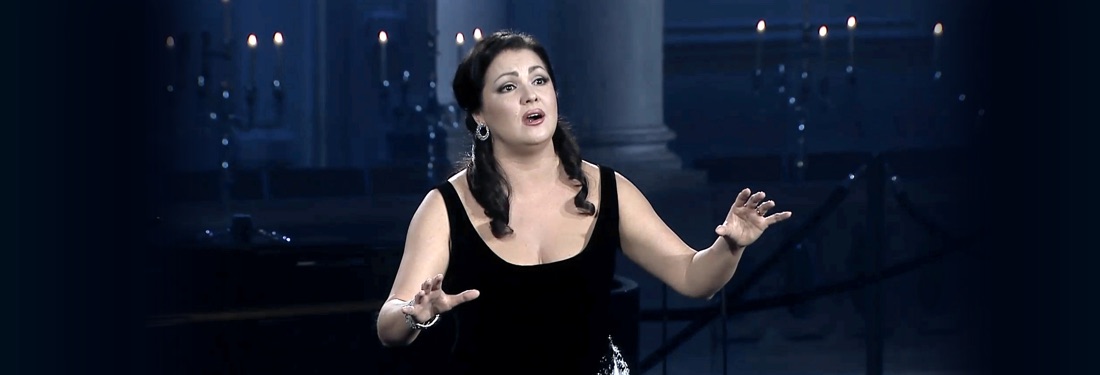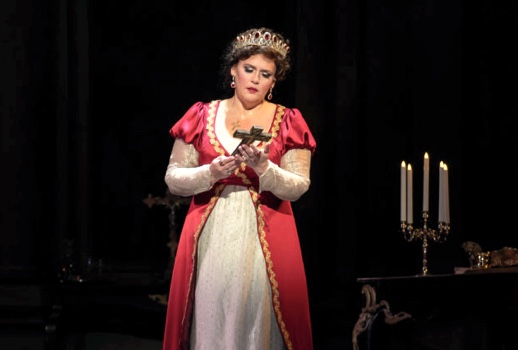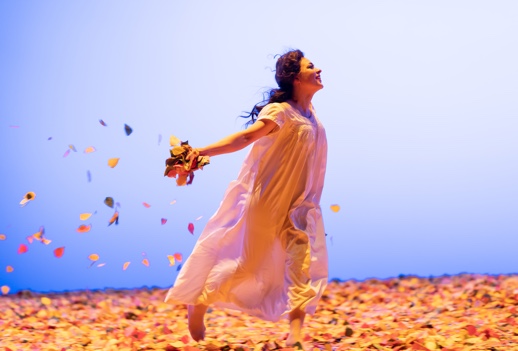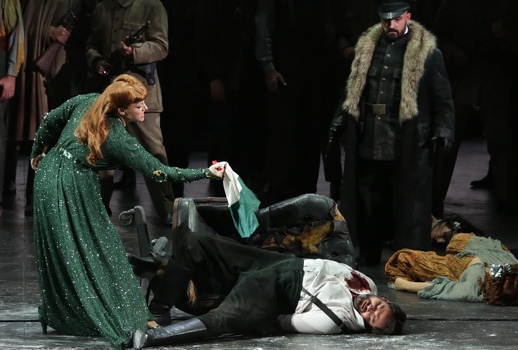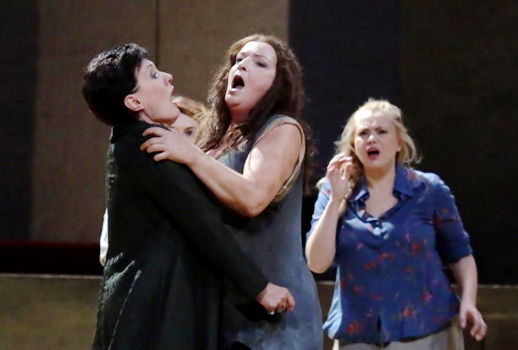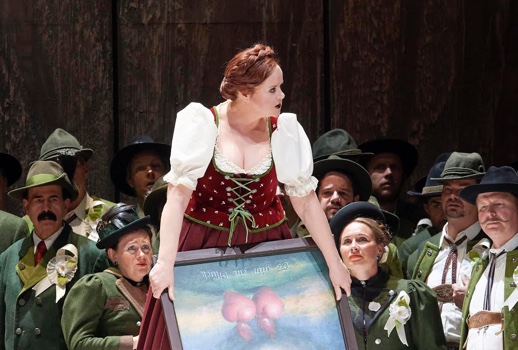
Harry Rose
In 2022, making Così fan tutte intimate is not a radical act. Making it enjoyable, however, is.
The Kennedy Center’s Opera House was a white-hot crucible of theatre kid energy on Friday evening for a luxurious 50 Years of Broadway at the Kennedy Center gala.
While the formulaic nature of some of Rossini’s other operas can undermine his ability to balance bravura singing and playing with legitimate drama, a concert Maometto II proves, with what it offers as much as what it lacks, that the formula still works.
From an exposure standpoint, Ruth Bader Ginsburg was the best thing to happen to opera since Beverly Sills.
Bay Street Theater deserves enormous credit for transforming Camelot from a clumsy historical epic into a breezy, human fairytale about leaders who cannot lead.
Concerts at Wolf Trap, mixed bags in more ways than one, provided fleeting glimpses of the old normal as moments of frisson mingled with more familiar monotony.
Pauline Viardot‘s Cendrillon hews closer to the Perrault original than either Rossini or Massenet’s more familiar retellings and is dainty in conception as a salon opera for her students.
For the weeks between the announcement that the return of Wolf Trap Opera would, in part, take the form of a concert performance of Sweeney Todd and its opening at the Filene Center on Friday evening, I racked my brain: why Sweeney now?
Proudly and vividly on display was Anna Netrebko’s unique and glamorous ability to wear the music like a parade of couture gowns—some more sparkly than others, some a more flattering fit, but all thoughtfully chosen and laced into with care.
Kennedy Center could not have predicted just how aptly Saturday evening’s rescheduled recital of 2020 Marian Anderson Award winner, baritone Will Liverman, would respond to the moment.
Renée Fleming presented a satisfyingly eclectic and quietly daring program of songs and arias, an interesting timestamp on a career that, despite its crepuscular vibe, seems as active as ever.
It’s Easter season, and that can mean only one thing for opera: It’s Cavalleria Rusticana time. And I, for one, couldn’t be more excited.
The ballet I have grown to love, admire, and ponder the most is Stravinsky’s first collaboration with George Balanchine, Apollo.
As long as women have been preyed upon, Don Giovanni has been relevant.
Over the past two decades, the understatedly beguiling Sasha Cooke has inched chronologically inwards in her subtle conquest of swathes of mezzo concert repertoire.
While Russell Thomas admirably goes toe to toe with Otello (and Otello) in a thoughtful and self-aware way, the assumption feels like a work in progress if not an outright mismatch with his vocal gifts.
Christian Gerhaher delivers a Kindertotenlieder of such conciliatory tact that it erases all others.
Tosca, as it exists now, can’t be real, spontaneous drama-it’s just Camp.
Is there any opera that can take more of a beating while still making an impact than Eugene Onegin?
“Non mi dispiace” seemed to be the general consensus in the loggione December 7 when Verdi’s Attila came roaring into La Scala to open the 2018-19 season.
In crafting his musicals, Sondheim’s focus, regardless of genre, tends towards the processive.
The singularity of Stephen Sondheim contributes to the conception of him as a camp figure.
Patrice Chéreau‘s Elektra brims with ideas beyond its eschewing of the opera’s standard, hysterical trappings.
Lohengrin descended upon the Wiener Staatsoper this month like American college students to Oktoberfest: loudly, spastically, not especially coherent, and in full lederhosen and dirndls.


















